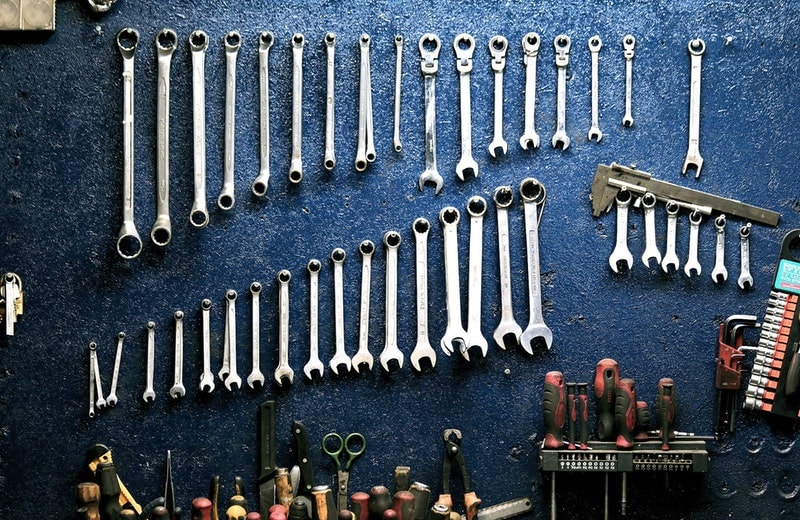Auto repair is a growing career in the United States. Many existing mechanics are either retiring, or expected to retire within the next five years. As a result, auto repair jobs are expected to see a surge in demand up to 2030.
Even without so many mechanics retiring, it is still a popular and stable job. According to a 2019 study, there were close to 300 million cars in the United States. With so many vehicles, it is no surprise mechanics are in high demand.
Another benefit of becoming a mechanic is the training. There are classes you can take for a degree, but to get started as a mechanic, you can attend a vocational school or community college course. This not only takes less time than a bachelor’s or associate degree, but it is significantly less expensive. Mechanics also have a high starting wage. The average salary is a little over $20 an hour, as of writing. However, more experienced mechanics may receive as much as $40 to $45 an hour.

Getting Educated
In order to become a mechanic, you must either have a high school diploma or a GED. Some high schools offer an automotive repair program as a class, sometimes referred to as auto shop. This class covers some of the basics and helps you prepare for additional training, but it is by no means a requirement. You can also take computer classes as well. Many modern vehicles feature more computer elements, so it is fast becoming a necessary mechanical skill.
After graduating from high school, the next step is post-secondary education. The quickest path to becoming a mechanic is attending a vocational school. How long the course takes varies depending on where you live. In most cases, courses last anywhere from six months to one year. If you are interested in specializing in an advanced field, such as engine repair, you can attend college for an associate degree. This process takes significantly longer, but the degree looks good on your resume, and may help when negotiating your starting salary.
As of writing, there is no certification necessary to become a mechanic. There may be some exceptions for specific jobs, depending on where you live. For example, in California, you need certification from the Environmental Protection Agency to work on air conditioning systems. Certification normally requires taking a few weeks of classes and passing a test. However, you must pay for both the classes and the test. If you are unsure whether there are certification requirements, check the mechanic job listings in your area to see what employers are looking for. If it is a common requirement, you will see it included in the required skills.
If you do not know where to get certification, check with the National Institute for Automotive Service Excellence (ASE). The ASE provides certification in over 40 specializes, including heating and air conditioning, suspension and steering, alternative fuels and general auto repair expertise.
Once you complete post-secondary education, you can apply for work. If you do not have any practical experience, consider an internship. Many local shops accept interns, with the intent to hire once they see what you are capable of. Even if this does not lead to a job, it is a good way to get on the job training, which you can include on your resume.
Additional Expenses
A common misconception is mechanics use whatever tools are provided by their job. With larger, specialized equipment, you can expect the shop to provide the materials. For day-to-day tasks, you are normally expected to have your own tools. Even if this is not a requirement, many mechanics recommend bringing your own tools. This may seem more expensive at first, but there are several practical benefits.
The first is you are more comfortable using tools you own. There are often multiple tools you can use to complete a task. Using an unfamiliar tool risks damaging the car. Bringing your own equipment also helps with organization. Because you are using your own tools, you are less likely to leave them laying around the shop, and you are more motivated to take care of each item. Employers also prefer when you bring your own tools, since it eliminates issues with property being misplaced or stolen.
Important Mechanic Skills
There are multiple skills necessary to succeed as a mechanic. One of the most important skills is efficiency. Mechanics normally bill by the hour, so drivers want their vehicles repaired as quickly as possible. If a driver suspects a shop is deliberately going slow just to charge more, he or she is likely going to go someplace else. Mechanics normally work alone as well, so it is important you stay motivated without a boss overseeing and directing your work.
Problem solving is an important skill as well. While there are some basic problems you must address, many cars behave, and also break down, in different ways. You must be able to think outside the box and come up with creative solutions, based on each individual circumstance.
Technical proficiency is also important. In the past, this mostly referred to understanding how the car works and what tools to use. In 2021, there are more computerized systems. You must also be familiar with alternative fuel cars and different computer systems and sensors used in modern vehicles.